EU Copyright Directive / Article 13
Overview
The EU Copyright Directive refers to Proposal for a Directive of the European Parliament and of the Council on Copyright in the Digital Single Market,[1] a proposed directive that is intended to change internet copyright law in the European Union. The policy would require anyone with ability to publish content to maintain a database of copyrighted works that were claimed by right's holders. Three of the articles within the proposal, however, have been met with scrutiny in regards to how it would change online behaviors, specifically in terms of uploading and sharing media.
Background
On September 14th, 2016, then-European Union Digital Commissioner Günther Oettinger presented a package of proposals to reform European copyright to the European Commission, a governing body in the EU that is responsible for presenting and implementing legislation across Europe.[6] The proposal states:
"Evolution of digital technologies has led to the emergence of new business models and reinforced the role of the Internet as the main marketplace for the distribution and access to copyright-protected content. In this new framework, rightholders face difficulties when seeking to license their rights and be remunerated for the online distribution of their works. This could put at risk the development of European creativity and production of creative content. It is therefore necessary to guarantee that authors and rightholders receive a fair share of the value that is generated by the use of their works and other subject-matter. Against this background, this proposal provides for measures aiming at improving the position of rightholders to negotiate and be remunerated for the exploitation of their content by online services giving access to user-uploaded content.
A vote on the proposal has been set for June 2018.
Developments
Criticism
The proposal has been criticized by some individuals, stating it will lead to censorship on the internet[2]. Main points of contentions within the proposal include articles 3[3], 11[4] and 13[5].
Article 3
Article 3 would create a copyright exception when used for Text and Data Mining research methods for research intsitution and only for the purpose of scientific research. However, this has drawn significant criticism as it will prevent independent researchers, journalists and companies to use the technique for products and services, placing more limitations on startups and other organizations existing outside of the scope of "scientific research.
On May 31st, 2018, Twitter[7] user @asta_fish tweeted, "What really annoys me is the fact that the EU (especially the European Parliament) will make text mining to make text-to-speech or speech-to-text technologies subjected to copyright. #TDM #copyright[…]This means that small languages, such as Icelandic or Faroese will be proportionally worse off because the whole written language corpus for the past thousand years equals one day of all the written English there's out there now days[…]By saying that you cannot do TDM on books except with an explicit license is a HUGE blow for small languages and will make them less likely to survive in the competition for language in the digital world."
![What really annoys me is the fact that the EU (especially the European Parliament) will make text mining to make text-to-spee Ásta Helgadóttir @asta fish What really annoys me is the fact that the EU (especially the European Parliament) will make text mining to make text-to-speech or speech-to-text technologies subjected to copyright. #TDM #copyright [thread] 5:54 AM - 31 May 2018 GO 11 Retweets 6 Likes Ásta Helgadóttir @asta fish-May 31 This means that small languages, such as Icelandic or Faroese will be proportionally worse off because the whole written language corpus for the past thousand years equals one day of all the written English there's out there now days. Ásta Helgadóttir @asta_fish May 31 By saying that you cannot do TDM on books except with an explicit license is a competition for language in the digital world.](https://i.kym-cdn.com/photos/images/newsfeed/001/378/936/31a.jpg)
Article 11
Artilce 11 would require extra copyrights for news or media outlets, requiring anyone who would like to link to a news site must first get a license from the publisher. Julia Reda writes, "The automatic link previews social networks generate when users share links (showing the article headline, a thumbnail picture and a short excerpt) would require a license, as well as anyone analysing news content on the web like news aggregators, media monitoring services and fact checking services."
Reda also claims that that article 11 could limit freedom of expression and access to information, boost fake news, discourage startups and small publishers.
"Making it legally risky or expensive to link (with snippets) to news risks disincentivising the sharing of reputable news content. Since “fake news” and propaganda outlets are unlikely to charge for snippets, their content could as a result become more visible on social networks."
Article 13
Article 13 requires that internet platforms that rely on hosting large amounts of user-uploaded data must monitor that content. Additionally, they must moderate the content to identify copyright infringement. The proposal could limit freedom of expression and harm independent creators.
On June 1st, 2018, YouTuber Computer Forever posted a criticism of article 13.
Memes Ban
On June 20th, the European Parliament Committee[8] on Legal Affairs voted yes to on articles 11 and 13 of the referendum. Many criticized the vote stating that it "threatened the openness of the internet and made it less free." However, despite the vote, the vote does not put the rules into law, but rather only secures European Parliament's position on the issue, before moving the process to the final stages.
That day, Twitter[9] user @Senficon tweeted, "#Article13, the #CensorshipMachines, has been adopted by @EP_Legal with a 15:10 majority. Again: We will take this fight to plenary and still hope to #SaveYourInternet." The post (shown below) received more than 1,000 retweets and 790 likes in 24 hours.

Online Reaction
People online referred to Article 13 as a "Memes Ban" and "Censorship Machines," referring to the copyright law which would use "content recognition technologies" that scans copyrighted videos, music, photos, text and code to remove them before they even get posted. Many believe that this would impact the creation and sharing of memes. As such, people began using memes to share news about Article 13.[10]
On June 12th, 2018, Redditor [11] the_numbers_mason_ posted a Drakeposting variation that had the words "The content you are trying to view has been banned by the EU copyright law." The post (shown below, left) recevied more than 8,900 points (97% upvoted) and 140 comments.
The next day, Redditor[13] Cosmin posted a Hackerman variant in /r/dankmemes. The post (shown below, center) received more than 6,900 points (98% upvoted) and 100 comments.
The following week, on June 20th, Redditor[12] HenrikAETt published a picture of a crying cat with the caption "When you realize the EU is about to ban memes and you don't have a last meme to post." Within 24 hours, the post (shown below, right) received more than 2,800 points (97% upvoted) and 50 comments.



Rejection
On July 5th, 2018, the directive was rejected 318 to 278 with 31 abstains. Further discussions of the directive was postponed till September 2018. Shortly after the vote was held, Twitter user @Senficon[14] tweeted a screenshot of the results (shown below). Over the next several hours, the tweet garnered upwards of 9,400 likes and 6,800 retweets.

That day, YouTubers Styxhexenhammer666 and The Thinkery uploaded videos reacting to the news (shown below).
Meanwhile, several image macros and posts about the announcement reached the front page of various subreddits, including /r/KotakuInAction,[15] /r/pcmasterrace,[16] /r/IncrediblesMemes,[17] /r/PrequelMemes[19] and /r/dankmemes/.[18]
![[Warning: Incredibles 2 spoilers] K u DW The legal status ot memes is Ihereby restored! DW](https://i.kym-cdn.com/photos/images/newsfeed/001/389/373/40b.png)
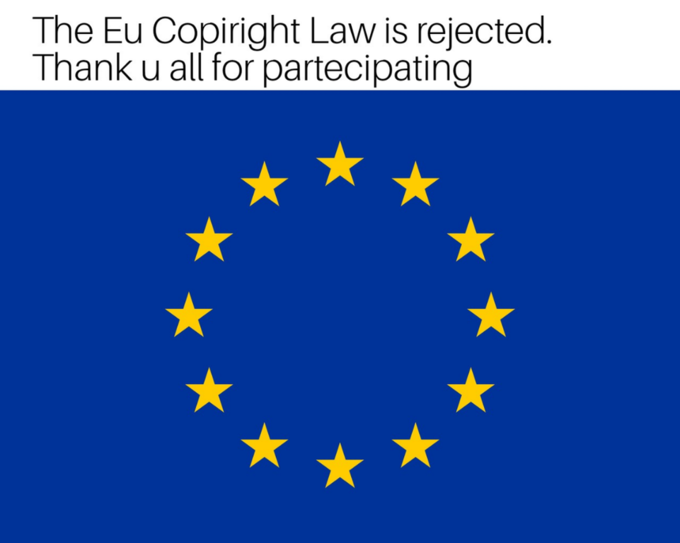
Approval of Updates
On September 12th, 2018, the Copyright Directive was approved along with updated versions of Articles 11 and 13, with 438 votes in favor and 226 against. That day, YouTuber Count Dankula uploaded a video titled "Article 13 Passed," lamenting the vote (shown below).
Meanwhile, posts about the passage reached the front page of /r/europe,[20] /r/ukpolitics[21] and /r/worldnews.[22] Meanwhile, image macros criticizing the vote reached the front page of /r/memes[24] and /r/PewDiePieSubmissions[23] (shown below).
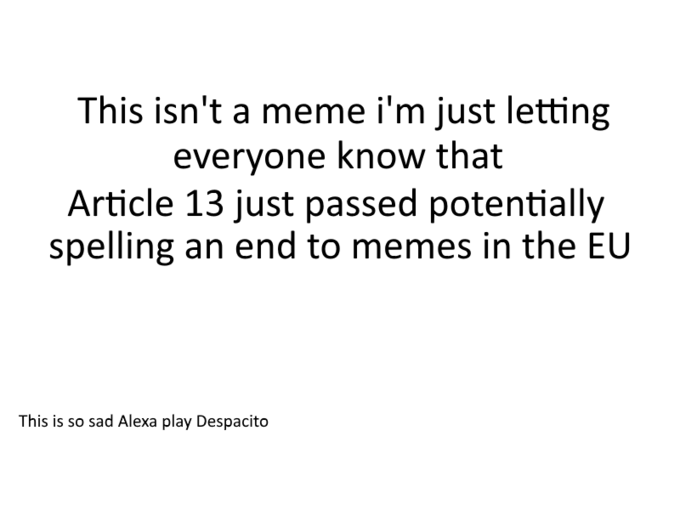

Meanwhile, YouTuber Grandayy posted tweets[25] speculating that automated copyright filters could remove "memes and parodies" since "bots can't distinguish parodies from actual infringement" (shown below).

#SaveOurInternet
On November 20th, 2018, Reddit[26] posted an announcement stating that they would be blocking the site in the EU to protest the EU Copyright Directive (shown below).. The post states, "We've repeatedly warned about how an overboard EU copyright directive could restrict Europeans' equal access tot he open Internet--an to Reddit. But time is running out. To drive home this point, we are blocking Reddit in the EU today from 09:00-17:00."
That day, Redditor[26] Grimdotdotdot posted the warning in the /r/OutOfTheLoop subreddit, receiving more than 750 points (94% upvoted) and 125 comments. However, the user Grimdotdotdot noted that the block did not work. They wrote, "As I'm posting from London, I'm guessing it's a hoax?"

The image links to to a website called "dontwreckthe.net,"[ which introduces a campaign called #DaveOurInternet." The site argues against the adoption Articles 11 and 13 of the EU Copyright Directive and offers solutions for fixing it. They wrote, "Unfortunately, Articles 11 and 13 of the EU Copyright Directive take a wrecking ball to those core concepts, and do so with little thought or understanding of the 2nd and 3rd order effects these moves will have on innovation and the ability to communicate online. Ideally, during trilogue negotiations, the EU would choose to remove entirely both Article 11 and 13, as they are not fit for purpose. Barring that, however, we have a number of suggestions for ways to improve both proposals."
The site also announces partnerships and support from Medium, Patreon, Vimeo, Reddit and more.
Google Search Test
On December 6th, 2018, Google[28] published a blog post by Richard Gigras, Vice President of Google News, criticizing the copyright measure. He said that the move would be "bad for small publishers, European consumers and online services."[28]
The following month, on January 15th, 2019, the website Search Engine Land[29] posted images produced by Google of what Google search would look like under the new regulations (shown below). The images show search results without images, copy and headlines.


Digital rights group EDRi Senior Policy Advisor Diego Naranjo told the Verge that the images weren't an "unreasonable interpretation of the legislaton.[30] "They’re just trying to show what Article 11 will push them to do. And in that sense, this is a possibility."
Twitch
On December 5th, 2018, Twitch CEO Emmett Shear sent an email[31] to all Twitch content creators reiterating that, "Article 13 changes the dynamic of how services like Twitch have to operate, to the detriment of creators." Shear warned creators on just how detrimental Article 13 could be. Publishing "commentary, criticism, fan works, and parodies" would be made almost impossible. Finally, a list is provided that includes suggestions on how to help:
"Speak out: inform and educate your community during a broadcast of the issues with the European Union’s approach to copyright law and motivate folks to take an interest on this topic. Be sure to title your streams #Article13.
Share your perspective with your Member of the European Parliament. You can find your representative here: https://www.europarl.europa.eu/meps/en/home
Join with other creators objecting to Article 13 at Create Refresh or #SaveYourInternet.
Sign a petition."
On February 26th, Julia Reda[32] of Germany’s Pirate Party and Tiemo Wolken of the country’s Social Democratic Party livestreamed a game of MarioKart on Twitch's official channel to discuss Article 13. A clip of the steam was uploaded to YouTube (shown below).
March 8th, 2019, Emmett Shear appeared live on Twitch to further describe the issue Twitch will face if the EU copyright directive is in place (shown below).
Passage by European Parliament
On March 26th, 2019, the European Parliament approved the copyright directive. 348 voted in favor of the legislation, 274 voted against it and 36 abstained from the vote.
The passing did come with some amendments, such as the exclusion of memes and GIFs from the final directive, which protects uploading works for "quotation, criticism, review, caricature, parody or pastiche."[6] Axel Voss, the European Parliament rapporteur, said in a statement, "We listened to the concerns raised and chose to doubly guarantee the freedom of expression. The 'meme', the 'gif', the 'snippet' are now protected more than ever before."
The vote will also exclude non-commercial uploads, like those on Wikipedia and open-source platforms like GitHub. Additionally, "start-up platforms will be subject to lighter obligations than more established ones" and content filters are not a specific requirement for platforms.
However, the law will continue to have effects on platforms like YouTube, Facebook and Google News, making them responsible for content uploaded by users, giving news organizations the ability "to negotiate deals on behalf of its journalists for news stories used by news aggregators."
Before the legislation can be signed into law, it must be approved by member states of the European Union. If it passes, the EU will have two years to implement the law.
Opponents of the directive criticized its passage. European Parliament member Julia Reda tweeted, "Dark day for internet freedom." The post received more than 8,000 retweets and 9,000 likes in less than 12 hours (shown below, left).[34] Twitter user @carolsgwen tweeted, "LISTEN CLOSELY ARTICLE 13 MAY BE PASSED BY THE EUROPEAN PARLIAMENT TODAY BUT IT TAKES 2 YEARS TO BE AN OFFICIAL LAW. UNTIL THEN WE HAVE TIME TO PROTEST & VOTE ON 23-26 MAY!" The post received more than 7,800 retweets and 14,000 likes in 24 hours (shown below, right).[35]


Following the post, some MEPs stated that they were unclear about what they were voting for. YouTuber Grandayy tweeted in Twitter thread, "The Copyright Directive including Article 13 has just been approved by EU Parliament. A vote for amending and improving it was rejected by a difference of just 5 votes too. Sad day for internet freedom in Europe. The Copyright Directive including Article 13 has just been approved by EU Parliament. A vote for amending and improving it was rejected by a difference of just 5 votes too. Sad day for internet freedom in Europe." The initial post in the thread received more than 6,000 retweets and 34,000 likes (shown below).
This is the state of the EU Parliament. According to the speaker himself, some MEPs were confused about what they were even voting for (please excuse the Maltese translations, the EU website is so bad that the English translations were in French for some reason) pic.twitter.com/R8ReFXa3xV
— Dr Grandayy (@grandayy) March 26, 2019
External References
[1] EUR-lex – Proposal for a DIRECTIVE OF THE EUROPEAN PARLIAMENT AND OF THE COUNCIL on copyright in the Digital Single Market
[2] EDRi – EU Member States agree on monitoring & filtering of internet uploads
[3] Julia Reda – Text and data mining limited
[4] Julia Reda – Extra copyright for news sites
[5] Julia Reda – Censorship machines
[6] Europa – EUR-Lex – 52016PC0593 – EN – EUR-Lex
[7] Twitter – @asta_fish's TweetW
[8] The Next Web – EU votes yes on meme ban, censorship machines and link tax -- what now?
[9] Twitter – @Senficon's Tweet
[10] Wired – The EU's bizarre war on memes is totally unwinnable
[11] Reddit – Not in my town!
[12] Reddit – It's been a good run
[13] Reddit – Don't leak my location
[15] Reddit – /r/KotakuInAction
[16] Reddit – /r/pcmasterrace
[17] Reddit – /r/IncrediblesMemes
[18] Reddit – /r/dankmemes
[19] Reddit – /r/PrequelMemes
[21] Reddit – /r/ukpolitics
[22] Reddit – /r/worldnews
[23] Reddit – /r/PewDiePieSubmissions
[25] Twitter – grande1899
[26] Reddit – Why are people talking about Reddit shutting down in the EU today?
[27] Don't Wreck The Net – Don't Wreck The Net | Fix The EU Copyright Directive
[28] Google – Proposed copyright rules: bad for small publishers, European consumers and online services
[29] Search Engine Land – EU copyright directive nearing final form as Google tests stripped-down news SERPs
[30] The Verge – This is what Google says search will look like under EU copyright laws
[31] Twitch – From our CEO
[33] Europa Parliament – European Parliament approves new copyright rules for the internet
[34] Twitter – @Senficon's Tweet
[35] Twitter – @carolsgwen's Tweet


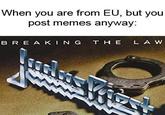


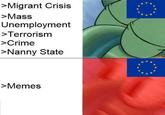










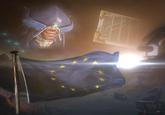
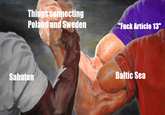
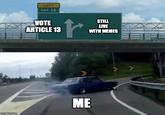


Top Comments
Ten Shadows
Sep 12, 2018 at 08:56AM EDT
S3rp3nt3
Jun 02, 2018 at 08:54AM EDT in reply to